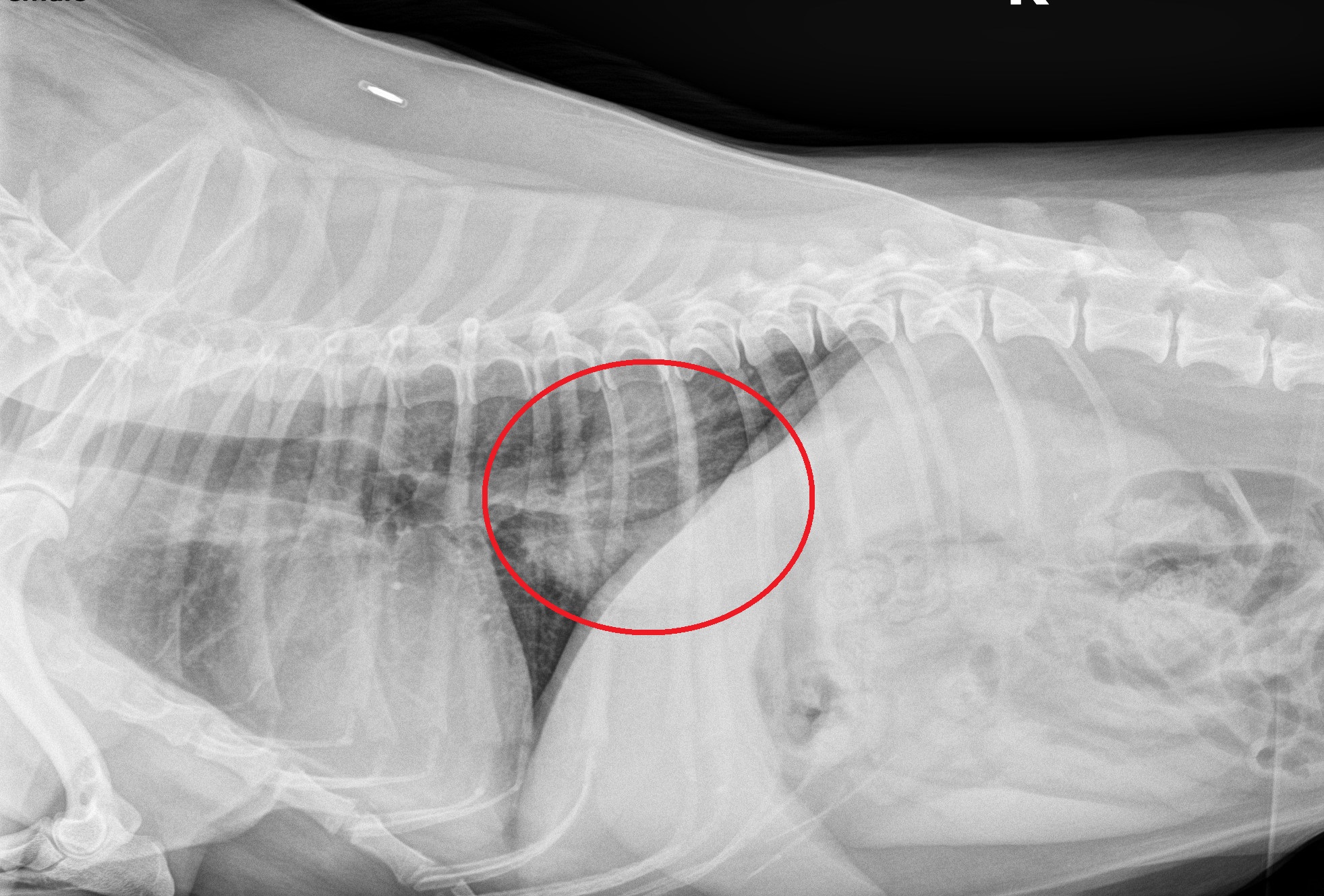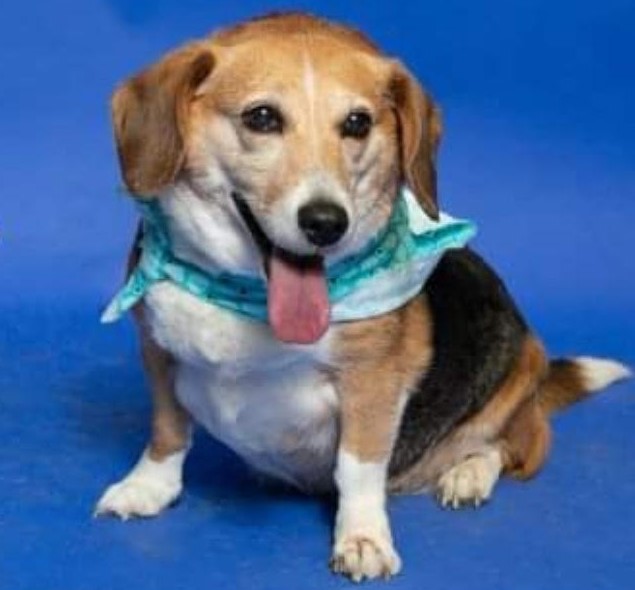Various diagnoses were offered, including mega-esophagus and a vitamin B12 deficiency.
Several chest X-rays didn’t reveal much… until they did.
To everyone surprise, the final X-rays revealed that the 5 year old Beagle had a mass in her lung!

Statistically speaking, there was a strong suspicion that the mass was cancerous. Before scheduling surgery to remove and diagnose the mass, blood work was performed to make sure Abbey was a good anesthesia candidate. Fortunately, she was otherwise healthy and therefore a great candidate.
Abbey’s owner found out about Harrisburg Regional by doing some research. A few days later, surgery was scheduled to remove the part of the lung that contained the mass (removal of a lung lobe is called a lung lobectomy).
She drove all the way from Baltimore to allow Abbey to have surgery!
She writes: “I was very nervous about Abbey’s surgery. (…) After dropping her off, I had an empty feeling because I was worried that she wouldn’t make it through the surgery.”
Surgery was uneventful. Luckily, the mass was of a size and in a location that allowed removal. It’s important to note that not all lung masses can be removed. If the mass is too large or in the wrong location, safe removal may not be an option.
Abbey’s owner writes: “Once Dr. Zeltzman was done in surgery, Abbey’s nurse called me to let me know that they successfully removed the mass. I was super ecstatic.”
Abbey recovered smoothly from anesthesia. A special drain, called a chest tube, was placed in the chest during surgery to help remove excess fluid or air. After an overnight stay in ICU, Abbey’s chest tube was removed the morning after surgery.
Abbey was discharged to continue pain medications and antibiotics. Open chest surgery is a major procedure, so she required strict R and R for 4 weeks to allow proper healing. Staples were removed after 2 weeks.
Her owner writes: “Prior to Abbey having surgery, she had this horrible cough and I could tell it was affecting her breathing. Now that she has had the surgery, she no longer has that cough.”
Unfortunately, a week after surgery, the biopsy report confirmed the suspicion of cancer. The mass was bronchoalveolar carcinoma. Abbey was referred to an oncologist to discuss follow up treatment options, such as chemo.
Abbey is doing well at home, ever so slightly spoiled by her owner.
She writes: “Several weeks after surgery, she is out running around and exploring new smells. (…) I was amazed to see how quickly she recovered from the surgery. She is like a puppy again!”
Her conclusion?
“Be your pet’s advocate. Do research. I am so glad that I met Dr. Zeltzman. He supported my decision to get the surgery done despite the nay-sayers. (…) I feel that the best way to help someone is by providing them knowledge that can make a difference.”
Phil Zeltzman, DVM, DACVS, CVJ, Fear Free Certified
www.HRVSS.com

